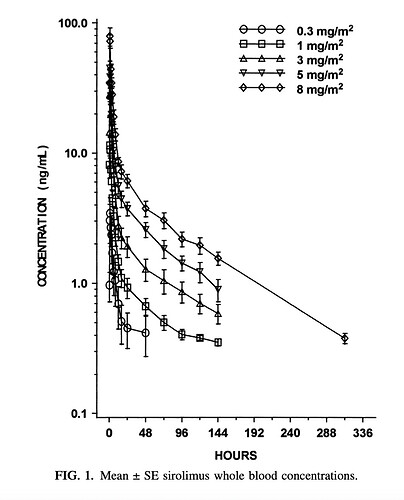Here is the fundamental trade-off / balance that we are trying to identify the optimal level for: the short-term decrease in mTORC1 / muscle protein synthesis will (in the period immediately following dosing) result in lower levels of muscle growth and regeneration. But, in the long term the periodic inhibition of mTORC1 will increase the lifespan/healthspan of our muscles.
In the short term, in the few hours after (a large) dosing of rapamycin the research suggests a significant decrease in protein synthesis. If you were a younger athlete training for the olympics you obviously don’t want to do this. But at some point in your life if pure performance becomes less important than healthy longevity, it seems a trade-off will need to be made of decreases short-term performance optimization for long-term performance optimization.
And I should mention also, that for most of us who are not elite athletes competing in the Masters series, or exercising 20 or 30 hours a week, this doesn’t really apply. We are not going to notice the minor hit of a once a week or once every two week dose of rapamycin on our muscle growth and regeneration.
So for the extreme athletes the goal, if we are to shift to the longer-term perspective, is to devise a protocol that minimizes the short-term “hit”, while maximizing the long-term benefits. This is our key challenge.
Here is the main study on how rapamycin impacts short-term muscle protein synthesis:
In this study above they dosed a high level of rapamycin and then did exercise during the peak period of blood/sirolimus (peak rapamycin blood levels) which is in the three hours immediately after dosing). It seems that the decrease in protein synthesis is going to map pretty closely to the rapamycin blood levels, which we can see in this graph:

(The above graph is from the paper included in the first post of the Rapamycin Dosing for Longevity thread.)
Here are some of the studies showing the benefits to muscles of rapamycin administration:
Anyway, this is all just food for thought as the extreme exercisers in our community work to optimize their exercise protocol with rapamycin use.